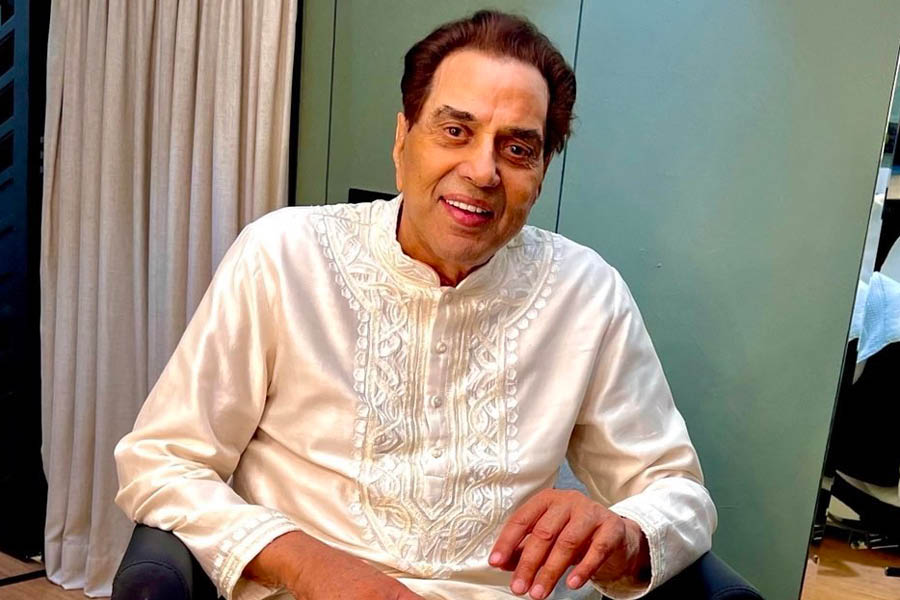|
|
Justice must be done and it’s just as well that justice has been done, albeit 35 years after the crime. But the hanging of five septuagenarians alone will not strengthen secular democracy in Bangladesh, inspire respect for the rule of law and wipe out the suspicion and mistrust that prompts Begum Khaleda Zia to deride Sheikh Hasina Wajed’s achievements in New Delhi as “a total sell-out”.
What this means is that jubilation over the latest India-Bangladesh agreements should be tempered by a realistic assessment of a relationship that defies conventional diplomatic definition. It’s not a question so much of issues as attitudes. The August 15, 1975 murderers represented an extreme attitude that is as inimical to good relations with India as to everything Wajed stands for, the two overlapping in Bangladeshi thinking. But they also represent a section of Bangladeshi opinion that Ziaur Rahman courted by revoking the constitutional clause banning communal parties and by abolishing the secular label. So did Hussain Mohammad Ershad’s elevation of Islam and Khandaker Mushtaq Ahmed’s indemnity ordinance. Pressure may have ensured that the massacre was not even reported to the police until October 2, 1996, but were the high court and supreme court judges also pressured into refusing to have any truck with the district and sessions court’s 1998 death sentence on 15 conspirators? Were all the votes for the Bangladesh Nationalist Party, Jamaat-e-Islami and Jatiya Party rigged? No, the supreme court ruling notwithstanding, opposition to the Awami League’s creed remains a strand in Bangladesh’s psyche.
On the face of it, Wajed seems invincible with 230 out of 300 parliamentarians while the four-party alliance led by Khaleda Zia’s Bangladesh Nationalist Party boasts only 32. Jamaat, its most militant constituent, has just two seats against 18 previously. But Jamaat is less a party than a way of thinking that can also find a resonance, depending on circumstances, in some sections of the Awami League. Khandaker’s contortions before and after liberation bore that out. Even Mujibur Rahman’s “Second Revolution” must have dismayed many who dreamt that liberation would mean a new civilization.
A one-party dictatorship under the Bangladesh Krishak Sramik Awami League with tight control of the media and judiciary turned dream into nightmare. Lawrence Lifschultz wrote in the Far Eastern Economic Review in 1974 that Bangladeshis thought “the corruption and malpractices and plunder of national wealth” under Mujib “unprecedented”. India’s high commissioner, Subimal Dutt, was reportedly disgusted at the regime playing footsy with the Organisation of the Islamic Conference and Pakistan’s Zulfiqar Ali Bhutto.
This is not to exonerate the murderers but to indicate the conditions that gave rise to discontent. Violence becomes inevitable when discontent is deprived of a legitimate outlet. With all its faults, India’s parliamentary system serves an essential purpose not because of some lofty Athenian ideal, but by allowing people to feel they have a share in decision-making and can change their rulers.
India and Bangladesh have a great opportunity now of working for the prosperity of 275 million people in this part of the subcontinent. But India must tread warily. Inder Kumar Gujral had advised Wajed during her 1995-2001 stint in office not to sell Bangladesh gas direct to India but through an American consortium. “Let them take their 10 per cent,” he said. “Otherwise, we’ll both be subject to too much political pressure.” Wajed’s visit has substantially increased India’s stake in Bangladesh which means increased exposure to critical appraisal. The cargo offloaded at Chittagong and Mongla ports must demonstrably be despatched to the Northeast without any suspicion of diversion en route. Nit-picking accountants must not be allowed to haggle over the $1 billion interest-free loan. The roads, railways and bridges India has promised must be built quicker than at home and be of world class. That also applies to the offer of 250 megawatts of electricity. Bangladeshis joked even in the first flush of independence that India’s gift of rice was full of stones, that the cloth given was more useful for storing water than wearing and that India had sent a mad poet. The bitter humour reflected a state of mind that can easily be revived.
It’s not as if all bones of contention have disappeared. Presumably, illegal immigration was not discussed during the talks since Indian political parties are as culpable as the Bangladeshis. As for the commitment to an amicable demarcation of the maritime boundary, the proof of the pudding lies in the eating. So, too, with the promise that the joint river commission on sharing the Teesta’s waters will meet next month. But even the fig-leaf of optimism cannot cover the Tipaimukh dam on the Barak river in Manipur which Bangladeshis say will affect their Surma and Kushiara rivers. It’s no comfort to them that 60,000 Manipuris also fear the project’s impact and that the Sinlung Indigenous People Human Rights Organisation complains that “the process for choosing it (the site) ignored both the indigenous people and the recommendations of the World Commission on Dams.”
Though not as emotive as land and water, trade is an equally divisive issue. Bangladesh’s complaint of being excluded from India’s expanding market by an unfair tariff structure is a grievance shared by all exporting nations and can only be removed through painstaking negotiations. The volume of imports from Bangladesh or the yield from the levies on them is irrelevant to the principle at stake and to India’s domestic requirements. Free trade remains the ideal and one day, no doubt, a South Asian free trade association will link up with the Association of Southeast Asian Nations in the east and the Gulf Coordination Council to the west.
Meanwhile, India must note with satisfaction that Wajed is taking concrete steps to live up to her early promise that “Bangladeshi soil will never be used to carry out any terrorist act against our neighbours.” But when her colleague, Hasan Mahmud, announced that his government was considering offering port transit facilities to “the seven-sister states” in India’s landlocked Northeast, he also bracketed China with them for similar facilities. It was a reminder that even a friendly Bangladesh cannot be taken for granted.
Wajed’s great advantage is that half of Bangladesh’s 81 million voters are young. Thirty-two per cent of them voted for the first time in the last election, explaining the extraordinarily high 80 per cent turnout. They have no memory of the liberation war and therefore no festering complexes about Calcutta, undivided Bengal and India. But 45 per cent of Bangladeshis live below the poverty line. Foreign direct investment between 1971 and 2006 amounted to only $3 billion, the amount the Tatas planned to invest there in a power plant, steel mill and fertilizer factory. The World Economic Forum described Bangladesh in 2004 as one of the most uncompetitive places to do business in. With Jamaat having reportedly set up between 40,000 and 65,000 madrasas, there will be no dearth of mischief-makers to exploit distress, especially since the BNP has no intention of taking the army chief’s advice to “reinvent a system of governance with new leadership at all levels” in order to reconstruct democracy.
Salauddin Quader Chowdhury, bête noire of all secular pro-India forces, had a story about the death of his father, Fazlul Quader Chowdhury, in Dhaka jail in 1973. As leader of the Muslim League, Fazlul opposed liberation and was accused of torturing and murdering liberation fighters. Salauddin says he told Tajuddin Ahmed to have air-conditioners and other comforts installed in the jail because his turn would come one day. It did, and with barbaric brutality.
Wajed must break this cycle of vengeful death if the Sonar Bangla dream is ever to mean anything. It will not be enough only to pay a dutiful daughter’s homage to her martyred kin. But neither can she — or India — afford to neglect Gujral’s advice.











